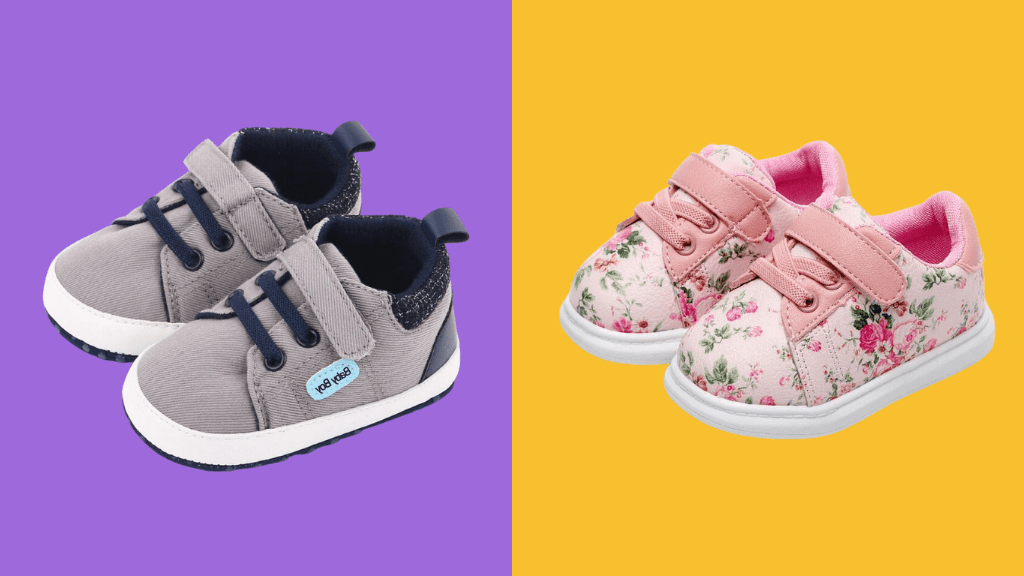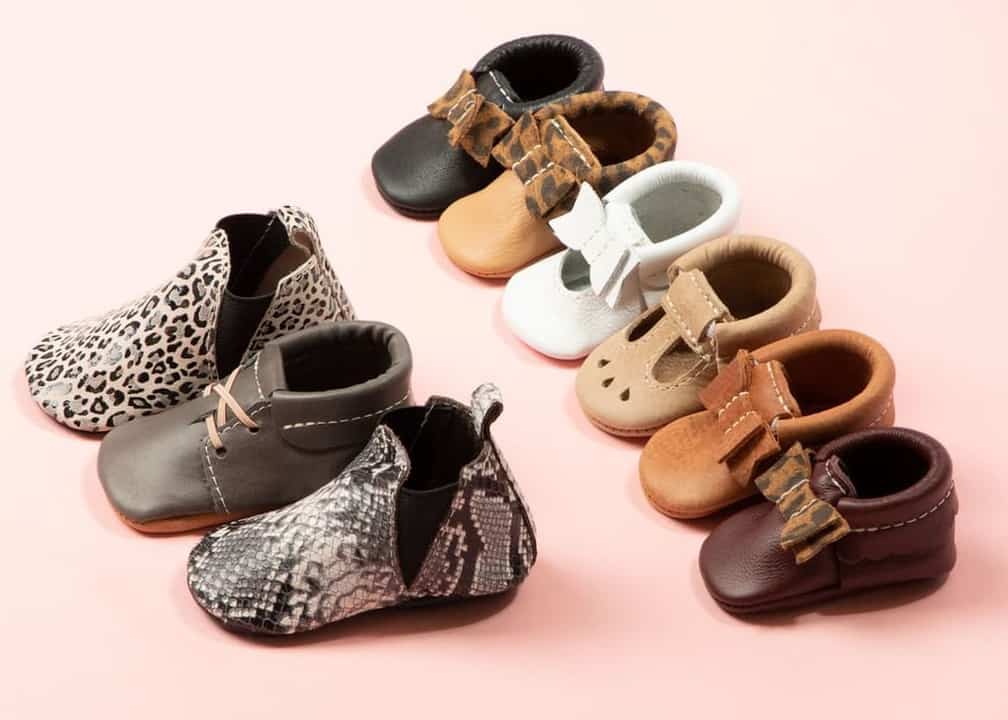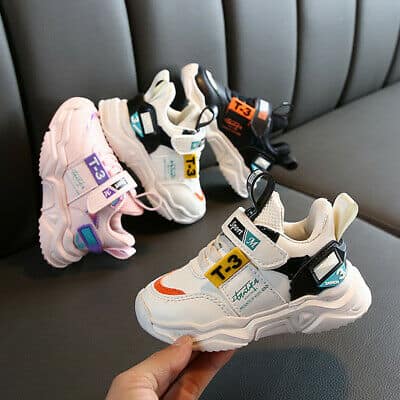
Table of Contents
You will be spoilt for choice if you are out there looking for baby shoes. From hard-soled and soft-soled to sneakers and sandals, there’s a rampant shoe trend for babies out in the market. But have you ever wondered whether young babies really need shoes or not?
As cute as they might look, baby shoes are not a necessity for babies who aren’t even walking yet. Also, it’s best to make sure that your baby is walking or crawling comfortably before introducing footwear on them regularly. Let’s check out what is best for babies in their walking journey.
What's Best For A Baby: Bare Feet? Socks? Shoes?
For the appropriate foot development of your baby, he or she needs to wear either sock or just be bare feet. We humans have 26 bones, 30 joints, and over 100 ligaments, muscles, and tendons. The foot’s structure becomes fully developed by the age of two but bones of the feet don’t fully develop or garden until the age of 18. So as your baby’s feet are growing and developing it’s best not to confine them in shoes.
Also, babies have a “fat” pad in the arch area of their feet that makes them look like flat feet. It is a naturally occurring arch support so that they do not require extra support to the arch.
Baby Shoes: What Are Hard-Soled Shoes And Soft-Soled Shoes?

Soft-soled baby shoes are flexible and lightweight while hard-soled shoes are rigid and heavy. As your baby’s feet grow and develop, it is best to not confine them in a rigid shoe. A hard sole will be heavy on a baby’s feet and it will make it harder to learn to walk.
- The recommended and best way for a baby to learn to walk is by being barefoot.
- This way they can feel the ground while walking and learn to be proprioceptive, coordinate, and balance.
- Proprioception is the body sense that tells you where you are in the space around them. This sense is of utmost importance when you are learning to walk. Your baby needs to feel his or her feet against the ground to achieve this sense.
- Barefoot walking will help babies to extend their toes to grip the floor so they do not fall.
The only reason you need to put on shoes is to keep the feet from harm when you have to face situations like extreme cold or hot weather, pointed objects, or gravel. If the outdoor location is extreme for soft soles then put on some hard soles for protection but for as short a time as possible. Going barefoot will help your baby to use their own muscles to work to find the right strength and balance. If you rely too much on the strength of a shoe then it will hinder the development of muscles in the ankle and foot.
The Perfect Shoe For A Baby
If you do not prefer to make your baby walk barefoot, you can choose a flexible and soft-soled shoe while still having the benefits of being barefoot. Soft-soled walking shoes allow the foot to be moved and bend easily. You must also choose skid-resistant or non-skid soles to prevent falls and slips. You need not buy baby shoes with ankle or arch support.
A correct fit shoe is very important for preventing ingrown toenails and comfort. An ill-fit shoe will cause foot injuries that will make your baby fussy. Remember that a baby’s feet grow very quickly at such a pace that you might need to buy a new pair of shoes every few months. If you own a pair of baby shoes, make sure you check if they fit about once a month. The heel of the shoe must be snug and nice but must have enough room at the top of the big toe. About a finger width distance is the required space inside the edge of the shoe. No shoes are always better than tight shoes!
Training Shoes For Babies: Myth Or Legit?

Babies need no shoes until they learn to walk and till then socks are enough to keep them warm. If you do not want your baby barefoot, socks or soft-soled shoes would be best to serve the purpose of protecting their feet.
When Should Children Start Wearing Shoes?
Wondering how and when to buy baby shoes? Wait till your baby can walk confidently and comfortably with no shoes on. Till then you should avoid the use of regular shoes, including hard-soled shoes which might be appropriate for outdoors. From around 15 to 24 months, your baby can make use of shoes outdoors. This age limit however varies with every child.
Do Babies Really Need Shoes? Final Words
Now you know babies need to be barefoot to learn to walk and for their feet to grow and develop properly. You might get tempted with the cute designs in the market but for the sake of your baby’s growth and development, save those shoes for photoshoots or wear them outdoors for a brief period of time where conditions could be extreme for those teeny weeny feet.









